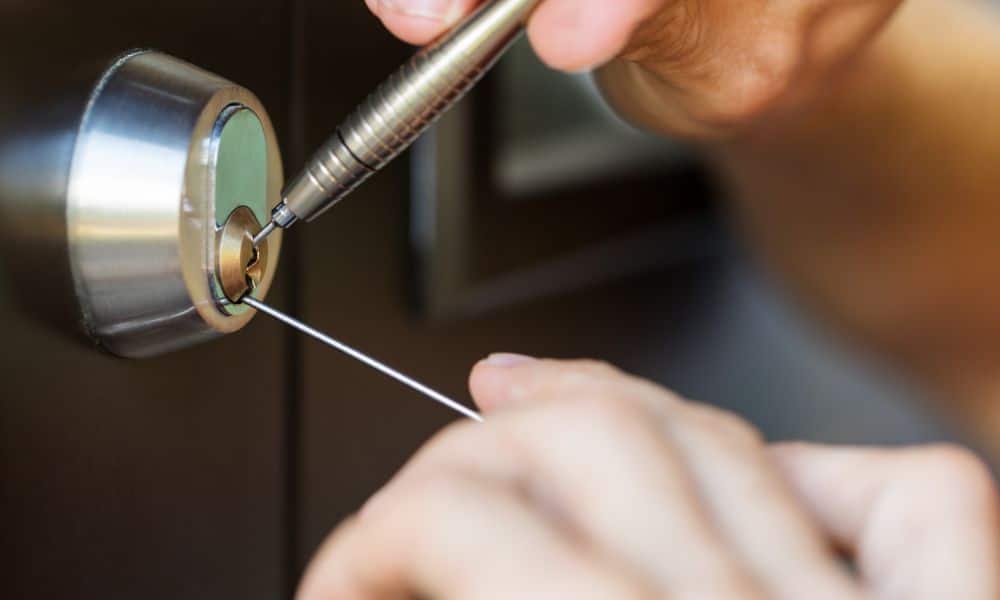The Role of a Locksmith in Modern Security: Insights from Experience

When most people hear the word locksmith, they think of someone called in during an emergency, usually when a key is lost or a lock is jammed. While that is part of the trade, the work of a locksmith today is far broader. Having spent decades in this profession, I can say with confidence that locksmithing has evolved into a multi-faceted craft that blends traditional mechanical skills with modern security knowledge. From simple key cutting to complex electronic systems, a locksmith needs to adapt to meet the changing needs of homes, businesses, and public spaces. Even something as specific as Bi-fold Door Repair has become part of what customers expect, as locks and mechanisms on these doors are often a point of failure in modern properties.
Locksmithing is about problem-solving. It is about understanding how locks function, why they fail, and how to restore security quickly without causing unnecessary damage. Over the years, the requests I have handled show that people do not only want a locksmith when they are locked out – they want long-term peace of mind that their property is safe.
The Day-to-Day Work of a Locksmith
Every day in this profession is different. Some mornings may begin with emergency call-outs where a family cannot get into their house. Other times, it may involve installing high-security locks for a commercial property, rekeying locks after a change of tenants, or advising a homeowner on ways to improve overall security.
A locksmith is often the first person people think of when their security fails. That might mean attending a burglary site where locks were forced or repairing a door that no longer closes properly. It also includes preventative work such as replacing old cylinders before they become vulnerable to snapping attacks.
The day-to-day work can be split into several areas:
- Emergency lockouts: Gaining entry without causing unnecessary damage.
- Lock repairs and replacements: Fixing mechanisms, installing new locks, and upgrading to British Standard models.
- Key services: Cutting duplicates, rekeying existing locks, and setting up master key systems.
- Door and window security: Repairing hinges, handles, and multi-point locking systems.
- Commercial security: Installing restricted key systems, access control, and steel security doors.
Why Locksmithing Still Matters in the Digital Age
With the rise of smart locks and electronic access systems, some assume traditional locksmithing is on the way out. In reality, the opposite is true. Security is only as strong as its weakest point. A smart lock on a poorly fitted uPVC door will not stop an intruder. Locksmiths remain essential because physical security is the foundation of any wider system.
A locksmith needs to understand both old and new technology. I have worked on antique locks in heritage buildings and also on modern digital systems for office blocks. The skills overlap. Both require precision, an understanding of mechanisms, and the ability to troubleshoot under pressure.
People also underestimate the importance of maintenance. Locks, hinges, and door frames experience wear and tear. A neglected mechanism is more likely to fail at the worst time. Homeowners who ask for a routine check of their doors and windows often prevent bigger problems later.
Residential Locksmith Services
Most of the calls I receive are from homeowners. Residential work covers a wide range of situations. One of the most common is helping someone back into their property after losing keys. In these cases, a locksmith uses non-destructive entry methods whenever possible.
Another major part of the job is upgrading home security. Many houses still rely on outdated locks that do not meet current standards. A locksmith advises on options such as anti-snap euro cylinders, high-security mortice locks, and multi-point locking systems. Customers also ask for window locks, patio door security, and repairs to handles and hinges.
Homeowners often call when moving into a new property. It is surprising how many people forget that previous occupants or tradespeople may still have keys. Changing locks or rekeying them gives new owners full control over who has access.
Commercial Locksmith Services
Commercial properties have different needs. Shops, offices, warehouses, and schools all require higher levels of protection. Burglary is a real risk, and insurance often requires certain lock standards.
In my experience, business owners are keen on practical security measures. They want locks that are tough, reliable, and easy to manage. Restricted key systems are a common request. These prevent unauthorised duplication of keys, meaning only designated staff can order new copies.
Many commercial jobs also involve door closers, panic hardware, and shutter locks. These are vital for both security and safety compliance. Electronic systems, such as card access or digital keypads, are also increasingly common. A locksmith bridges the gap between mechanical and electronic security, ensuring both are fitted and maintained correctly.
Emergency Call-Outs
Locksmiths are often needed when something has gone wrong. A snapped key in a lock, a door that will not close, or a failed mechanism can leave a property insecure. Emergency work requires speed and accuracy.
People in these situations are usually stressed. They need someone who can not only fix the problem but also reassure them. I have attended countless call-outs at all hours, and the key is to restore access or security as quickly as possible.
Emergency services also include helping after a burglary. That may involve replacing damaged locks, boarding up a broken door, and advising on ways to strengthen security going forward.
The Importance of Door and Window Repairs
Many people do not realise how often a locksmith deals with more than just locks. Doors and windows are integral to security. A faulty hinge or damaged frame can make even the best lock useless.
uPVC and composite doors are especially common today, and they come with multi-point locking systems. These rely on a series of hooks, rollers, and bolts. If the mechanism wears down, the door may jam or refuse to lock. A locksmith knows how to strip, repair, or replace these systems.
Windows are another weak point. Broken handles or failed locking mechanisms make them easy targets for intruders. Routine inspection and timely repairs prevent these issues from escalating.
Modern Security Challenges
The challenges facing property owners today are different from a generation ago. Lock snapping is one of the biggest concerns. Standard euro cylinders are vulnerable to being snapped in half, giving intruders quick access. This is why I always recommend anti-snap cylinders that comply with current British Standards.
Another challenge is balancing security with convenience. People want systems that are easy to use but still effective. That is where solutions like high-quality digital locks or restricted master keys come in. They provide control without compromising safety.
Burglary techniques continue to evolve. As locksmiths, we have to stay ahead of these methods. That means ongoing training, understanding new products, and testing them in real-world conditions.
Choosing the Right Locksmith
When you search for a locksmith Leeds, you will find many options. The difficulty is knowing which to trust. Experience, training, and reputation matter. A good locksmith is not only skilled with tools but also reliable, respectful, and discreet. Customers let locksmiths into their homes and businesses, so trust is the foundation of the trade.
Local knowledge is also valuable. A locksmith who works regularly in the area understands common security issues, typical house types, and the methods criminals use locally. That makes their advice practical and relevant.
For people searching online, it is wise to look for locksmiths who are transparent about their services and pricing. Avoid those who promise unrealistically low call-out fees but charge hidden costs later.
Preventative Security Measures
Much of locksmithing is about prevention. Waiting until a lock fails or a burglary occurs is always more stressful and more expensive. Simple steps can make a big difference:
- Replacing old or worn locks before they break.
- Upgrading to anti-snap cylinders.
- Installing secondary security such as window locks and door chains.
- Maintaining hinges, handles, and mechanisms.
- Scheduling periodic security checks.
By addressing these issues early, property owners reduce the likelihood of emergencies. It also extends the life of their doors and windows.
Locksmithing and Customer Support
Over the years, I have noticed that the best locksmith services are not only about fixing problems but also about building trust with customers. When someone calls in a state of panic because they are locked out, the way you respond matters as much as the technical work.
Clear communication, realistic expectations, and professional conduct are all part of the service. A locksmith should explain what they are doing and why, without hiding behind jargon. That helps customers feel reassured and informed.
Conclusion: The Value of Experience
Locksmithing is more than a trade. It is a profession built on trust, skill, and the ability to adapt to changing security needs. From emergency lockouts to advanced commercial systems, the work demands both precision and reliability.
Modern locksmiths handle everything from traditional locks to advanced digital systems, while also repairing doors, windows, and mechanisms that keep properties secure. For homeowners, landlords, and businesses alike, having a trusted locksmith provides reassurance that help is available when it matters most.Whether you need an urgent repair, advice on upgrading security, or a service such as locksmith Leeds, the role of the locksmith remains central to keeping properties safe.





